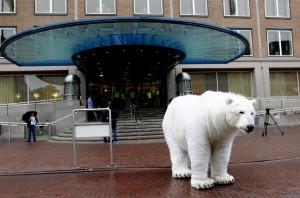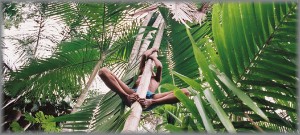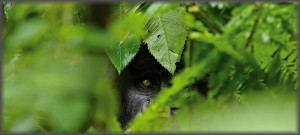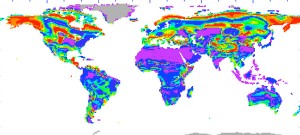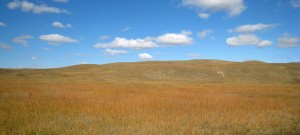Biodiversity
Business focus: Mountain sports company Vaude explain how they’ve cut their carbon footprint
In the build-up to Rio+20 RTCC asked businesses from around the world to send us their stories. Today’s focus is how German clothing company VAUDE was able to measure and improve on its environmental impacts.
Youth Profile #7: Why Indonesia’s biodiversity is at the front line of the fight against climate change
In RTCC’s latest youth profile Putri Ayusha from Transformasi Hijau talks about changing behavior in Indonesia – the world’s third largest emitter.
Photo of the week #29: The Galapagos islands’ unique position for monitoring climate change
The Galapagos Islands are home to some unusual inhabitants threatened by climate change but the isle’s unique placement to study global environmental change is less well known.
Deforestation in Amazon driving species to extinction
The latest international climate change news, debate and video from RTCC.
Climate change could cause Leatherback turtle populations in Costa Rica to collapse by 2100
Eastern Pacific populations of Leatherback turtles could drop 75% by the end of the century as a result of climate change, according to a study published in Nature Climate Change.
Planet’s “health” has declined since first Rio Earth Summit
Living Planet Index has declined 30% since 1970 as WWF calls for change of pace in the response at Rio+20.
Countdown to Rio+20 starts now
As we enter the last 50 days before the UN Summit in Rio, RTCC kicks-off its coverage. Climate change, sustainable development and the green economy will dominate proceedings but how much can be achieved?
“Significant Challenges” for life in the Arctic Ocean, says report
Unique all-season report finds risk to biodiversity in the Arctic Ocean and points towards “significant challenges” faced by the region’s nature. Meanwhile another study finds some species could still thrive in the Arctic.
Climate change doubles the cost of conservation
Work to protect ecosystems, endangered species and ensure clean air and water made more difficult and expensive by climate threats.
The week in climate change: Five things we learnt
RTCC takes a look back over at the big headlines this week to see what lessons can be learnt.
$300 billion a year needed to save biodiversity
The new chief of the United National Convention of Biological Diversity has said saving biodiversity will cost the world $300 billion a year but warned doing nothing would cost much more.
Photo of the week #8
This week’s photo of the week features the Açai Palm trees found in the Amazon Rainforest in Brazil.
RTCC photo of the week #2
This week’s Rio Conventions Calendar photo features a silverback Muninya peering out from the jungle.
NASA: Climate change to create huge ecosystem stress
Plant communities covering almost half of the Earth’s land surface could be fundamentally affected by climate change according to new research from NASA.
Climate change could lead to bigger birds
New report suggests birds in central California are growing larger to help ride out severe weather related to climate change.
State Department considers re-routing Keystone pipeline
As the US State Department inspector general gets set to review the handling of the Keystone XL pipeline, opponents say it could threaten already endangered species on the Nebraska Sandhills.
Climate Change ‘shrinking’ animals
Rising temperatures and disruptive weather patterns linked with climate change could be causing many animal and plant species to shrink, according to new research

